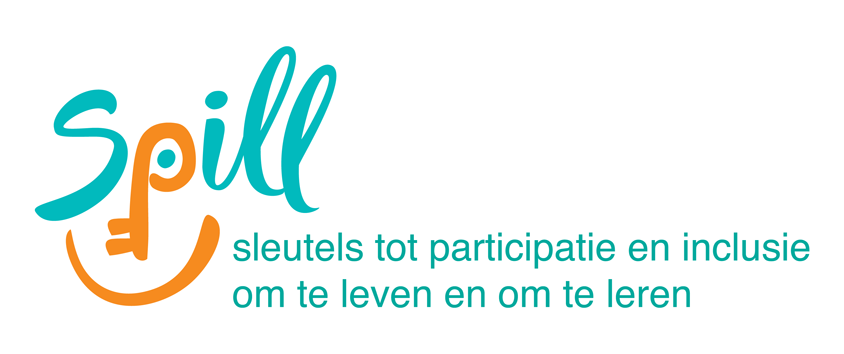 INCLUES (Clues to Inclusive & Cognitive Education) (2003-6) was a European Network project (BE, IT, ES, UK, RO, NO, LV, CZ) led by the University of Antwerp, to promote Inclusive Education together with a cognitively oriented education, aimed at promoting learning processes and learning how to to learn. It produced a still current book and DVD, an international course and two special editions of an academic journal of psychology..
INCLUES (Clues to Inclusive & Cognitive Education) (2003-6) was a European Network project (BE, IT, ES, UK, RO, NO, LV, CZ) led by the University of Antwerp, to promote Inclusive Education together with a cognitively oriented education, aimed at promoting learning processes and learning how to to learn. It produced a still current book and DVD, an international course and two special editions of an academic journal of psychology..
Results – publications
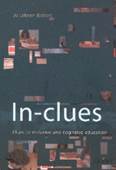 | All project results were brought together in a book with DVD, “In-clues. Clues to inclusive and cognitive education”, published in 2006 by Garant Publishers in Antwerp/Apeldoorn. The DVD contains interviews with experts, teachers, children & parents; movies with examples of inclusive education in different countries that are still current + all articles and conference presentations. More info and order via www.maklu.be . |
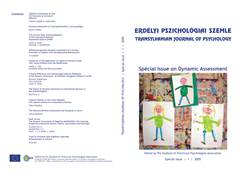 | A special issue of the scientific journal “Transylvanian Journal of psychology” – published by the Inclues partner of Babes-Bolyai University, on the topic of dynamic evaluation of learning ability. With contributions by Reuven & Rafi Feuerstein, Lou Falik, Carol Lidz, Jo Lebeer, Roberta Garbo, Lucia de Anna, Ruth Deutsch, Vera Pokorna and Zenija Berzina. Download here the full special issue. |
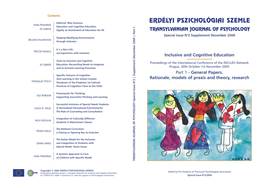 | Following an international conference in Prague (2005), the Inclues partner Babes-Bolyai University published a Special Issue of the “Transylvanian Journal of Psychology” on Inclusive and Cognitive Education. “Part 1: General Papers, Rationale, models of praxis and theory, research”, contains contributions by Reuven Feuerstein, Peetjie Engels, Jo Lebeer, Stanislav Stech, Sue Robson, Lou Falik, Alex kozulin, Peder Haug, Dario Ianes and Vera Pokorna. Download here part 1 of the full special issue. |
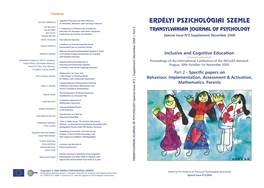 | Download here Part 2 of the Special Issue Inclusive and Cognitive Education “Behaviour, Implementation, Assessment & activation, Mathematics, Parents” with contributions about cognitive processes (G.Sonnesyn); inclusive education of teenagers with Down Syndrome (Sue Buckley); Index for Inclusion (Mark Vaughn); School transformation towards inclusive school (Vanda Hájková); Nyborg’s Concept Teaching (A.Hansen); Dynamic assessment in severe langage disorder (F.Gonzales e.a.); Mathematics for everyone (N. Engels); Rigorous mathematical thinking (J. Kinard); Mental structures (M.Henry); mathematic education (M.Ben Hur); concept building in 3D geometry (D.Jirotková); Classification (J.Kratochvilová); consultative counselling (Katborg & Clasen); parent-child interaction & self-regulaton (D.Pasternak); parent involvement in inclusion (E.Krastina e.a.); parent training in cognitive activation 0-6 (M.Stará) |
Objectives
This project aims to create a network of education professionals and parents who work towards the realization of inclusive and cognitive education. We define inclusive education as education for everyone together, no matter how different the students are. In Inclusive Education, children who learn with more difficulties (whatever the cause, social or disability) learn together with “faster learning” children. Inclusive education adapts to the individual needs of all children, regardless of the nature of difficulties, special needs or levels. Children with disabilities are entitled to “reasonable accommodations” so that they can attend school with others. By Cognitive Education we mean activating the basic cognitive skills of a child (which it needs in learning scholastic, social, motor, artistic and emotional skills) and thus better learn how to learn. The name IN-CLUES alludes to the English “clues”, i.e. the keys of learning.
1. Transforming attitudes and learning styles in teachers. The aim is to make teachers (and others in an educational or evaluation role) more aware of the hidden learning opportunities of children who are “at risk” of low education or exclusion. That teachers have the capacity to enable better learning experiences and acquire skills, thereby excluding fewer students
2. Promote cognitive education as a tool for inclusive education. Cognitive education is not aimed at just acquiring knowledge: it develops basic conditions for thinking. These serve as “mental tools” to learn how to learn and ultimately learn more independently. Forming teachers to teach in a learning-process-oriented way, to differentiate in content, evaluation and level of complexity, according to the individuality of the student, so that each student can achieve a learning success experience.
3. Transformation of school systems, curricula and teacher education, towards an inclusive and more learning-enhancing cognitive education.
4. Promote new didactic approaches that take into account different learning styles
5. Promote a different way of evaluation: more dynamic, more focused on learning processes, both of the subject matter and the evaluations by the school counseling services instead of the usual standards
Partners
Belgium
![]() Universiteit Antwerpen, Project of LEarning Enhancement & Inclusion. Contactperson: Jo Lebeer
Universiteit Antwerpen, Project of LEarning Enhancement & Inclusion. Contactperson: Jo Lebeer Artesis University College (Nu Artesis-Plantijn AP University College), Department Teacher Training & Social Work. Contactperson: Sonia Depauw
Artesis University College (Nu Artesis-Plantijn AP University College), Department Teacher Training & Social Work. Contactperson: Sonia Depauw
Spain
 F.E.R.E. Madrid Spanish Federation of Christian Schools, Department Pedagogical Innovation. Contactperson: Lorenzo Tebar
F.E.R.E. Madrid Spanish Federation of Christian Schools, Department Pedagogical Innovation. Contactperson: Lorenzo Tebar
Italy
 Università Bicocca di Milano, Dep. of Special Needs Education. Contactperson: Roberta Garbo
Università Bicocca di Milano, Dep. of Special Needs Education. Contactperson: Roberta Garbo
 Istituto Universitario delle Scienze Motorie IUSM, Rome. Contactperson: Lucia de Anna
Istituto Universitario delle Scienze Motorie IUSM, Rome. Contactperson: Lucia de Anna
United Kingdom
 Centre for Studies on Inclusive Education, Bristol. Contactperson Mark Vaughan
Centre for Studies on Inclusive Education, Bristol. Contactperson Mark Vaughan
Norway
![]() Institutt for Anvendt Pedagogikk INAP, Voss. Contactperson: Gunvor Sonnesyn
Institutt for Anvendt Pedagogikk INAP, Voss. Contactperson: Gunvor Sonnesyn
![]() Sörlandet kompetansesenter- SKS, Kristiansand.. Contact person: Jarl Formo
Sörlandet kompetansesenter- SKS, Kristiansand.. Contact person: Jarl Formo
Czech Republic
 Univerzita Karlova, Pedagogická fakulta
Univerzita Karlova, Pedagogická fakulta
Latvia
 IZGLITIBAS INICIATIVU CENTRS (Centre for Educational Initiatives) Jekabpils
IZGLITIBAS INICIATIVU CENTRS (Centre for Educational Initiatives) Jekabpils
Romania
 Babes-Bolyai University Cluj-Napoca- Faculty of Psychology and Educational Sciences, Department of Psychology – Hungarian Line of Study.
Babes-Bolyai University Cluj-Napoca- Faculty of Psychology and Educational Sciences, Department of Psychology – Hungarian Line of Study.
Disclaimer
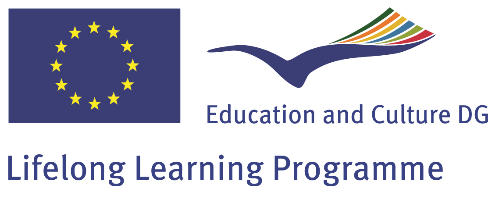 The INCLUES project received financial support from the European Commission from 2003-2006. Action Comenius 107855-CP-1-2003-1-BE-COMENIUS-C3. The Commission cannot be held responsible for the content of this project.
The INCLUES project received financial support from the European Commission from 2003-2006. Action Comenius 107855-CP-1-2003-1-BE-COMENIUS-C3. The Commission cannot be held responsible for the content of this project.
